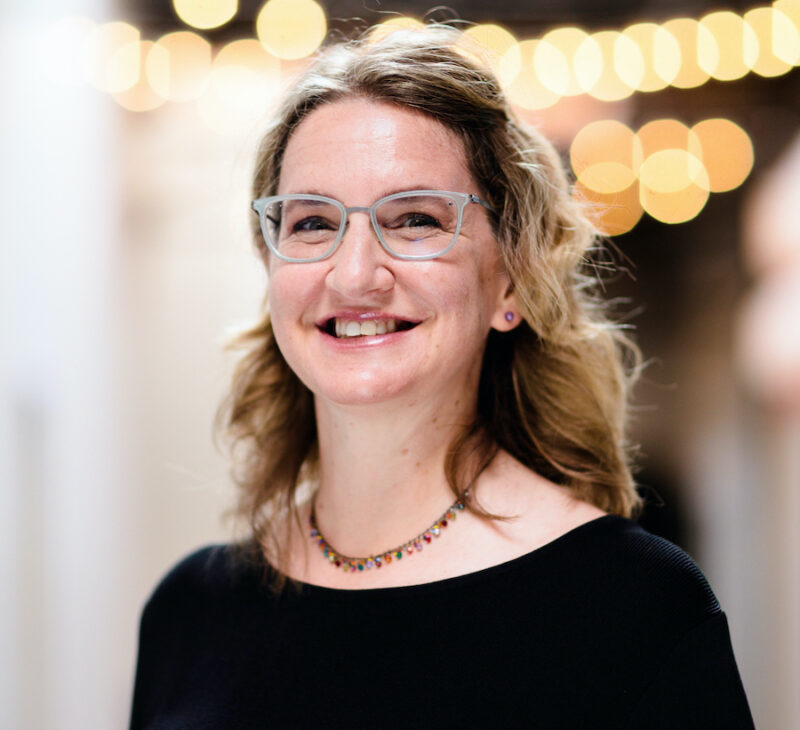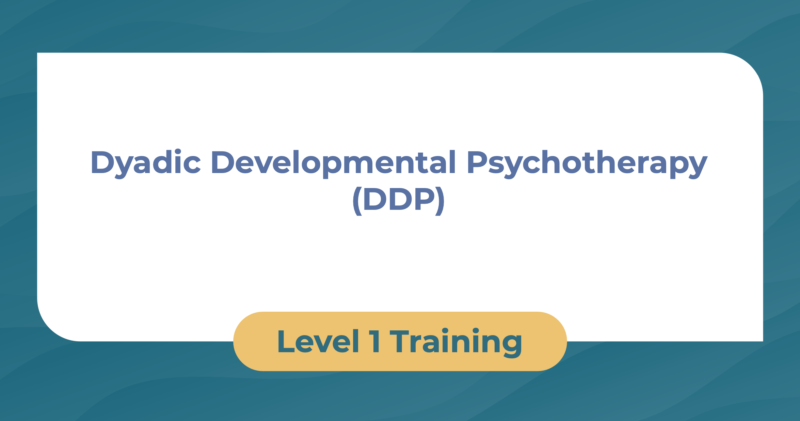Online Training Open to Participants Worldwide
This approach assists therapists and other professionals to understand and effectively support children, young people and their families. In this model, theory and research in the areas of developmental trauma, attachment theory, intersubjectivity and child development are integrated to produce a therapeutic approach used for relationship development and trauma resolution. DDP recognizes the vital role which adoptive parents, foster carers and residential workers play as primary attachment figures in the recovery of traumatized, attachment-resistant children.
The principles and interventions are presented through formal presentations, discussion, videotape of sessions, role-play, and handouts.
This course is relevant for therapists and clinicians who want to increase their skill set of attachment focused treatment. This training is also suitable for parents, social workers, child and youth workers, caregivers or teachers working with children with attachment issues. The model is relevant for those working with children aged four through to adult years. Each course is limited to 15 participants.
Please note that while Level One and Two are open access for professionals working with children and families, there are specific requirements that need to be fulfilled for those who plan to go on to apply for certification as a Practitioner in DDP. Please refer to what is required before starting the practicum for further information.
Review One: I valued participating in this training with you. Seeing your model PACE in practice really helped consolidate it for me. Seeing you model the importance of voice prosody and vitality affect was transformational. I have been using this every day with my kids since I saw you using it and I cannot express in words, what a difference it has already made to our relationships.
Review Two: It was all so helpful and I’ve learnt so much. I really liked the mixture of discussion, videos, role-play and the attachment questionnaire. I feel like I’ve learnt so much and also grown in confidence with my understanding and (hopefully) application of the model.
Dafna is extremely knowledgeable and passionate, which I think made the training easier to absorb. Dafna seems to embody the PACE model and her kindness and curiosity means that you are pushed outside of your comfort zone at times in a really helpful way.
Review Three: I think the balance you have of being really kind but pushing people to make the most of the training is such a good skill. I feel like your passion has rubbed off on me and the desire to help others and the client group we see. It’s such valuable training and I feel very grateful to have been able to take part in it.
--> In addition to the core training curriculum, I focus on the non-specifics of being a therapeutic presence. You will learn experiential exercises that focus on micro-behaviors that promote a sense of trust and safety.
--> My area of specialty includes working with very young, dysreguated children in DDP. If they won’t/can’t talk and won’t sit still, you can still do DDP!
--> I have plenty of videos of my own clinical cases to show to really illustrate the How-to’s of DDP.
--> My teaching style is physical and dynamic. I will have you up and moving about, playing and interacting in small groups with your colleagues. You don’t have to worry about your feet falling asleep from sitting too long in my training!

LEVEL ONE
ONLINE: December 3, 4, 5, 8, & 9, 2025 --> Register Below
8:30 AM - 2:00 PM (Central Time, USA & Canada)
LEVEL TWO
ONLINE: October 22, 23, 24, 27, 28, 2025 --> CLICK HERE to Register
8:30 AM - 2:00 PM (Central Time, USA & Canada)
Email [email protected] with any questions.
Click here for Time Zone Converter
Contact [email protected] if you have any questions or want to be added to the waitlist!
Purchase DDP Level One & Two Online Sessions
Open to Participants Living Anywhere in the World
$850.00 USD
Program Only
Included features:
We're sorry, this course is full. Please join our waitlist to be notified of upcoming courses.
Agenda: Level One

This is an introductory 5-day course on Dyadic Developmental Psychotherapy, the intervention model developed by Dr. Daniel Hughes. The goal is for therapists and other professionals to understand and effectively support children, young people and their families. In this model, theory and research in the areas of developmental trauma, attachment theory, intersubjectivity and child development are integrated to produce a therapeutic approach used for relationship development and trauma resolution. DDP recognizes the vital role which adoptive parents, foster carers and residential workers play as primary attachment figures in the recovery of traumatized, attachment-resistant children.
By the end of the training, you will be able to:
--> Describe the principles of Attachment Theory
--> List the areas of functioning that are affected by Complex Trauma
--> Describe the intervention of PACE
--> List 2 playful responses in a PACE dialogue
--> List 2 accepting responses in a PACE dialogue
--> List 2 empathic responses in a PACE dialogue
--> List 2 curious responses in a PACE dialogue
--> List 3 symptoms of toxic shame
--> Explain 3 components of the A/R dialogue
--> List 2 interventions for facilitating direct parent-child communication
--> List 3 steps in preparing parents for working in the DDP model
--> Explain the condition of Blocked Care
--> List 2 feelings in the therapist that indicate parent-only work may be indicated
Sometimes practitioners who complete Level One feel that Level Two isn’t for them, thinkingit is mainly for people working as therapists directly with children and their families. This isnot the case. Level Two is aimed at all practitioners in this area of work.
This can include practitioners or social workers who primarily work with foster or adoptive parents, undertaking assessments and placement matching, or initial work with parents and later placement or family support. It doesn’t matter if the practitioner doesn’t work with children; the parenting aspects of this approach will be relevant. The same applies for social workers and practitioners working with children in care and children in birth families.
Each participant will have an opportunity to receive consultation about his or her work. It is hoped that people have been able to record their work to get direct consultation using clips. However recording work has become much harder over the years and this is almost impossible if you work in a Local Authority team. If this isn’t possible, consultation and discussion of your practice can be effectively done via specific case discussion.
Sometimes using the idea of “practice in action”, with people in the group role-playing being the child or parent. This can be done as part of a case discussion and picking out a complex or difficult conversation that has happened to discuss in more detail and, for example, consider ways of bringing in PACE. The trainer will always offer to role play being the therapist, social worker or practitioner, as doing this in front of the group can feel daunting and it is usually easier at first to role play being a parent, carer or child.
During the 5 days, practitioners will have opportunities to further develop their skills, talk through work they feel is going well and work where they feel stuck, whatever level they feel they are at. The trainer will tailor the course to meet the consultation and skills training needs of the group.
Therapists will bring examples of their work with children and their parents and caregivers or their work with parents. Sometimes social workers and professionals who work primarily with parents, or in residential or educational settings, wonder what work examples would be helpful to bring. Specific information for social workers has been included below.
Some examples of practice that social workers could bring for consultation, who are working primarily with adoptive parents and foster families. These are just examples. Any area of your practice would be suitable to bring where you are forming a relationship with parents or carers and you either need to assess them or they are bringing a problem to you that they want help with.
Participants generally say they get a great deal out of Level Two as hearing about other people's work, and listening to consultation about this, is helpful as issues tend to be shared.
Talking about an aspect of your attachment history in groups of 3
Each person takes a turn in talking for the hour allocated on days 1, 2 and 3 while the other two people listen and ask questions as appropriate. This information will not be shared with the group. On day 4, the groups spend 20 minutes reflecting together about what they have learned and another 20 minutes talking in the whole group about the process. It will be the responsibility of each individual to only share personal information that they are happy about. The aim is to link aspects of your own history to doing this kind of work.
Sign up with your email to receive news and updates.